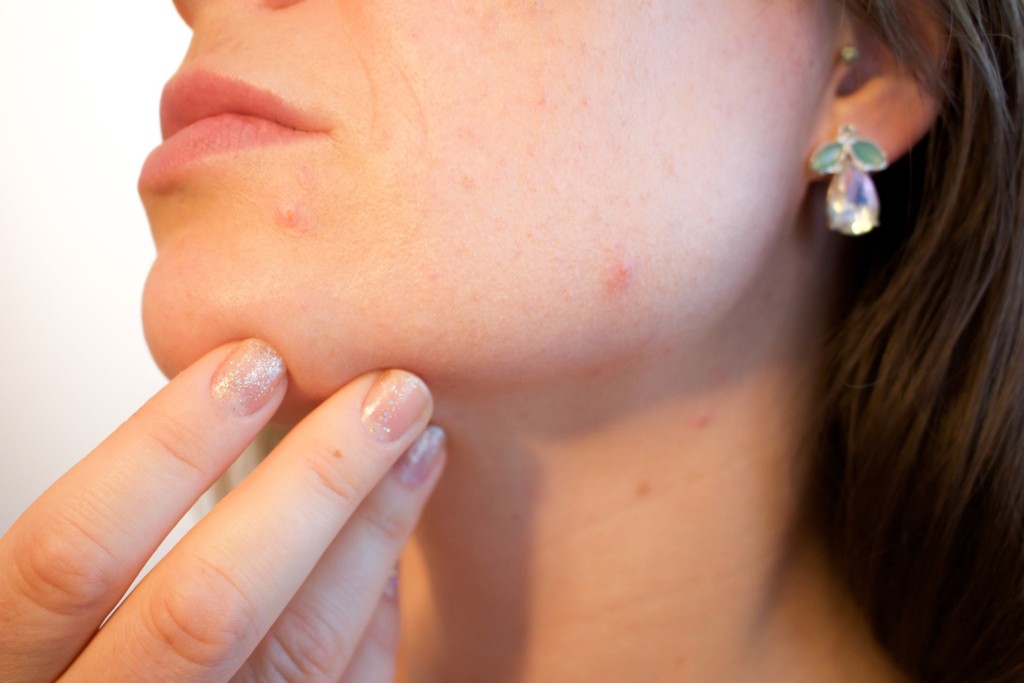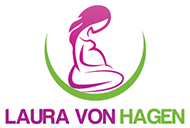Aren’t you glad you’re no longer a teenager? High school was tough. I have no desire to go back there and neither does your skin. But sometimes you feel like your 25 going on 15 if you’re struggling with acne all over again.
While the bacteria Propionibacterium acnes (P. Acnes) and inflammation are the two main causes of acne, hormone imbalances are also a major trigger. In my clinical experience, acne is often caused by a combination of hormonal dysregulation, food sensitivities, inflammation and gut dysbiosis. It is my job as a Naturopathic Doctor to treat the root cause of your acne for clear skin that lasts.

Are my hormones causing my acne?
Clues that your acne might be caused by your hormones include:
- Breakouts that occur right before and/or during your menses
- Acne along your lower face, especially the jawline
- High testosterone or DHEA-S on blood work
- Estrogen dominance (heavy & painful period, breast tenderness, anxiety)
- Acne that improves when on the birth control pill
- A diagnosis of PCOS
What can I do to fix my hormonal acne?
Get tested and know your numbers
Test, don’t guess when it comes to your hormones. As a Naturopathic Doctor, I routinely run lab when treating hormonal disorders. In addition to standard blood work, I use comprehensive dried urine hormone testing to assess how well your body metabolizes and breakdowns hormones in your tissue.
Control your blood sugar and lower your insulin
Avoid refined carbohydrates such as white sugar, white flour and white potatoes, essentially any white, processed carbs. These foods cause a sudden spike in blood sugar, which can increase testosterone and worsen acne. Research has shown that a higher-protein, lower-glycemic load diet can improve acne, lower insulin levels and promote weight loss. Say what, don’t worry I am here to guide you. I offer customized diet plans for all my patients to ensure you are getting the right nutrition for your body and skin.
Balance your hormones naturally- Below are my top three tips for balancing your hormones that don’t require any medications
-
- Exercise & Acupuncture: Acne is a common issue for women who suffer from Polycystic Ovarian Syndrome (PCOS). One study found that a combination of weekly acupuncture and physical exercise decreased acne scores by up 32%! Exercise helps balance insulin levels, improve mood, and reduce constipation. Acupuncture can help regulate menstrual cycles and reduce stress. It’s a win-win situation all around.
- Get Pooping: No surprise, talking about poop is one of my favourite topics! Daily bowel movements are essential to hormone balance. In my practice, I have seen a strong link between hormonal acne and constipation. Eating a high-fibre diet and optimizing your gut flora with probiotics and fermented foods will help remove excess circulating estrogens. Above all, my favourite foods for hormone balancing and healthy poops are ground flax and chia seeds. Download my Free Fertility Friendly Eating Guide to get my amazing pumpkin chia pudding recipe.
- Reduce exposure to xenoestrogens: Xenoestrogens are chemicals disrupters in our environment that bind strongly to estrogen receptors and interfere with hormone signalling. They accumulate rapidly in hormone-sensitive tissue and have been shown to increase the risk of breast cancer. Common sources of xenoestrogens include parabens in beauty products and BPA/BPS in plastic. First of all, NEVER, I REPEAT, EVER heat up your food in a plastic container. This directly leeches the chemicals into your foods. Replace your plastic water bottles with steel or glass. As for parabens, looks for skincare products that are labelled 100% paraben-free. There are lots of great, local companies that I recommend to patients based on their skin type.
If you’re ready to say good-bye to your acne and feel like an adult again, let’s work together and get you on the path towards clear skin. Book a complimentary 15-minute consultation with me to get started today.
References
Smith, Robyn N., et al. “The effect of a high-protein, low glycemic–load diet versus a conventional, high glycemic–load diet on biochemical parameters associated with acne vulgaris: A randomized, investigator-masked, controlled trial.” Journal of the American Academy of Dermatology 57.2 (2007): 247-256.
Arora, Megha Kataria, Amita Yadav, and Vandana Saini. “Role of hormones in acne vulgaris.” Clinical biochemistry 44.13 (2011): 1035-1040.
Gorbach, Sherwood L., and Barry R. Goldin. “Diet and the excretion and enterohepatic cycling of estrogens.” Preventive medicine 16.4 (1987): 525-531.
Jedel, Elizabeth, et al. “Impact of electro-acupuncture and physical exercise on hyperandrogenism and oligo/amenorrhea in women with polycystic ovary syndrome: a randomized controlled trial.” American Journal of Physiology-Endocrinology and Metabolism 300.1 (2010): E37-E45.
Davis, Devra Lee, et al. “Medical hypothesis: xenoestrogens as preventable causes of breast cancer.” Environmental health perspectives 101.5 (1993): 372.

